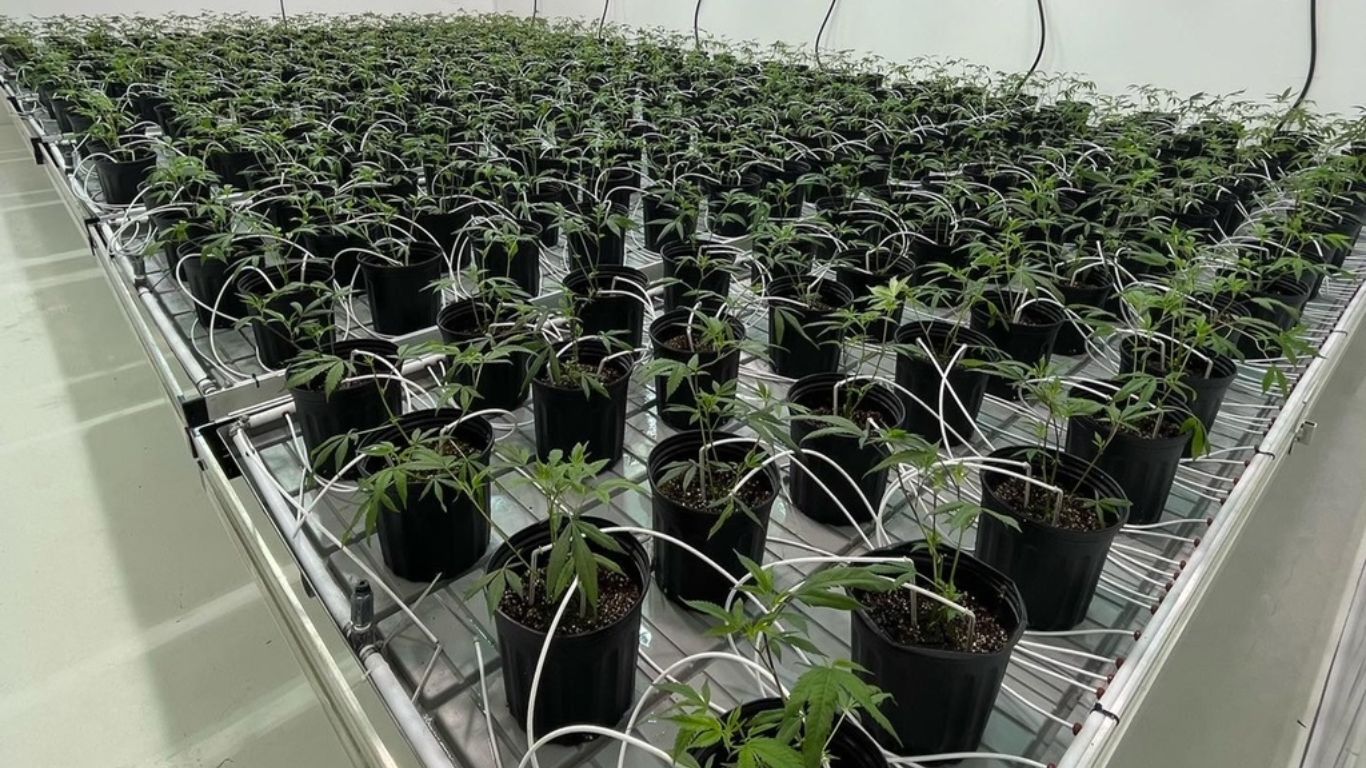
Saskatchewan Polytechnic has partnered with Saskatchewan-based cannabis nursery Mother Labs on a breeding program focussing on screening for mildew resistance.
The applied research project was first proposed by Mother Labs, who brought the idea to Saskatchewan Polytechnic’s BioScience Applied Research Centre (BARC). The Centre gives experts from private industry access to the polytechnic’s applied research expertise.
“Our partnership with Sask Polytech symbolizes a significant stride towards addressing a spectrum of challenges in the cannabis industry,” says Jordan Hannah, Director of Operations at Mother Labs.
Researchers use PCR-based molecular markers as a way to look for agronomic traits in cannabis plants.
Students from the BioScience Technology program extract DNA from tissue samples and use PCR-based markers (Polymerase chain reaction) to screen breeding lines for the presence or absence of specific genes.
“PCR tests, similar to the COVID PCR tests previously used for out-of-country travel, were employed by our students in the investigation of cannabis plants,” says research chair Blaine Chartrand. “Specifically, our students used PCR testing to detect plants that contained genes for resistance to powdery mildew and to determine their sex for breeding applications.”
“Collaborating with Mother Labs allowed students to gain insights into the cannabis sector through facility tours and firsthand learning experiences,” he adds.
The team accurately determined the sex of 40 different cannabis plants using PCR tests.
The Mother Labs project was funded by the National Research Council of Canada Industrial Research Assistance Program (NRC-IRAP).
Saskatchewan Polytechnic received cannabis research and analytical licenses from Health Canada in 2023.
“As the cannabis industry continues to mature, it will be vital to develop excellent breeding programs and energy-efficient methods of propagation. Sask Polytech’s applied research will draw on techniques that are well established in the traditional agricultural space and adapt them for use in the cannabis industry to improve plant quality and performance,” said Dr. Susan Blum, Associate Vice-President of Applied Research and Innovation at Sask Polytech at the time.
Read more about this project at saskpolytech.ca.
Other industry collaborations
This is not the only instance of such a project in Canada. Powdery Mildew is one of the most common diseases that cannabis growers often struggle with, especially in humid climates. Because of this, the industry in Canada and abroad is looking to identify and even patent genetics with resistance to the disease.
In 2020, more than $4.2 million in federal, provincial, and industry funding was announced to aid with research at the University of British Columbia (UBC) into enhanced cannabis cultivars, focusing on disease resistance for issues like powdery mildew.
The project, Fast-Track Breeding of Powdery Mildew-Resistant Cannabis, involved UBC researchers Dr. Loren Rieseberg and Dr. Marco Todesco, in partnership with Aurora Cannabis.
Aurora said they had filed a provisional patent application on powdery mildew resistance that was discovered through this program and will take legal action to protect their research and development.
Breeding is, of course, not limited to looking to address powdery mildew. In 2023, UBC’s Dr. Todesco also announced they were teaming up with a geneticist at Aurora to adapt cannabis for outdoor production.











